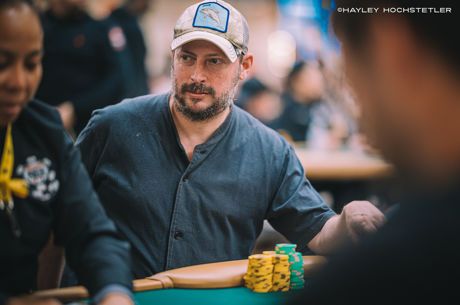Internet Gambling Regulation and Tax Enforcement Act Reintroduced

Rep. Jim McDermott (D-Wash.) reintroduced his Internet Gambling Regulation and Tax Enforcement Act late last week.
This isn't a new bill that will compete with Barney Frank's legislation. These are companion pieces that have been linked for the past few years. The Congressmen worked together to form these bills, which will eventually be combined if Internet gambling legislation is to come to vote in the House.
Frank's bill sets the guidelines for licensing and regulating the industry, making it so licensed operators have to collect and apply all taxes. McDermott's bill, which explains those fees and taxes, couldn't pass without Frank's bill, and Frank's bill needs McDermott's.
The 2010 version of McDermott's bill is mostly the same as previous years but contains two key changes. First, the legislation establishes a state license fee in addition to the federal license fee. A six percent deposit fee paid by the licensed operators would go to the state, hopefully getting more states on board with having the industry federally regulated.
Interestingly, if a state, say California, decided to opt out of the federal legislation, but a California resident were vacationing in a state that was participating, California would still get the tax from the deposit. This taste of the money available could convince states that do opt out initially to come aboard in the future.
Second, the bill designates 25 percent of the federal revenue to foster care programs. With the current estimate that regulation could generate up to $42 billion over 10 years, that would give $10.5 billion to foster care programs over 10 years.
"It's about McDermott seeing money on the table and wanting to allocate the money to something he sees as important and needing of more support," saidMichael Waxman, spokesman for the Safe and Secure Internet Gambling Initiative.
McDermott has indicated that once Frank's bill is marked up in the House Financial Services Committee, which Frank told PokerNews would probably be in May, McDermott would make a stronger push for movement on his bill.
- - - - - - - - - -
The Kentucky domain seizure case is headed back to the Kentucky Supreme Court, this time to be decided on its merits.
The Supreme Court originally ruled that the Interactive Media Entertainment and Gaming Council had not demonstrated standing to challenge the seizure on behalf of the affected domain owners. The ruling sent the case back to the Kentucky Court of Appeals until iMEGA, which keeps its membership confidential, could show that at least one of its members owned one of the 141 domain names seized.
Yatahay Limited, the owner of Truepoker.com, stepped forward and submitted an affidavit to the court asserting ownership of the domain and membership in the trade association. That was good enough for the Court of Appeals to refer the case back to the Supreme Court.
No further arguments or hearings are expected to be needed for the court to make its decision. iMEGA chairman Joe Brennan Jr. is optimistic for a positive result after the court called iMEGA's arguments "numerous" and "compelling" in its previous ruling regarding standing.
Follow us on Twitter for up-to-the-minute news.








